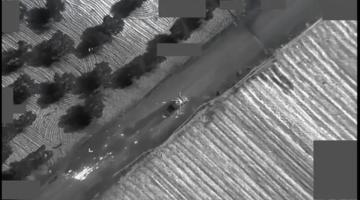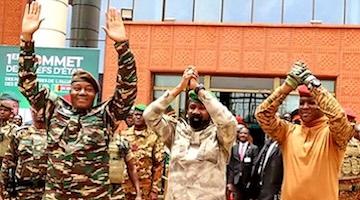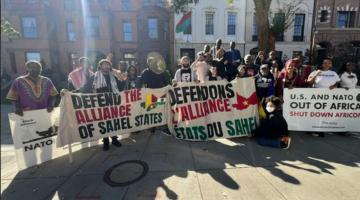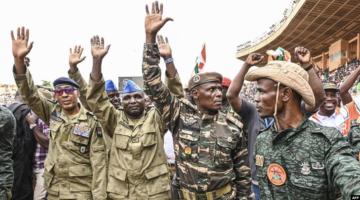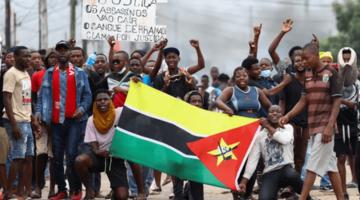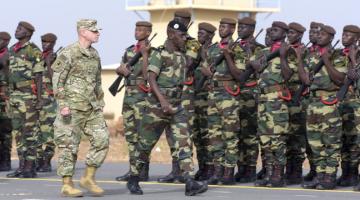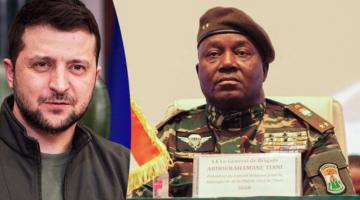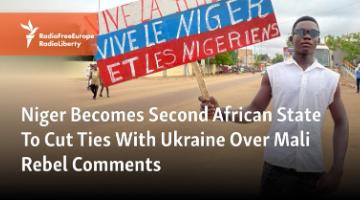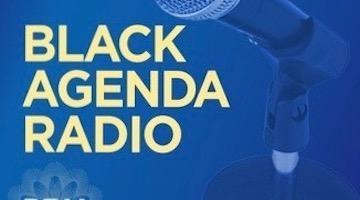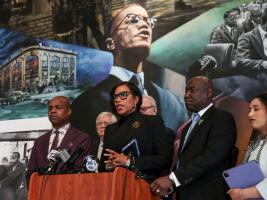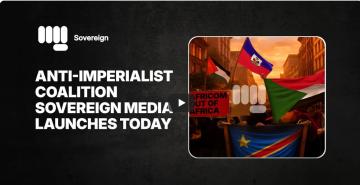The latest AFRICOM Watch Bulletin provides analysis of coups in Africa and an nterview with journalist and activist Owei Lakemfa.
The interventions of France and the United States have done more to worsen instability in the Sahel and other regions of the continent as manifested through the recent seizures and removals of governments on West Africa. At the root of the numerous coups taking place on the African continent is the economic and political alienation born from decades of Western neo-colonialism and an unsustainable global economy.
The ostensible purpose of the numerous Pentagon training operations is to provide assistance to governments in Africa related to the enhancement of their internal security structures. However, with the advent of AFRICOM beginning in 2008 and the escalation of military officers being trained by the Defense Department both on the continent and in the U.S., the actual security situation in Africa has declined precipitously. France and the U.S. effectively created a zone of terror in the Sahel by supporting war in Algeria and overthrowing Gaddafi. The human security crisis in the region has greatly contributed to a political opening for the legitimation of state capture by military juntas via coups d'état.
In Mali, Burkina Faso, and Guinea, the officers involved in military coups d’etat had close ties with various Pentagon and State Department projects. Even though the rationale for taking power in Mali and now Burkina Faso was that the civilian governments had failed to protect people from the jihadists, since the 2012 coup in Mali, the successive military and civilian administrations have not been able to defeat the insurgencies. Even domestic police forces throughout the African continent receive training from U.S. police officers through the U.S.-led International Association of Chiefs of Police (IACP)’s International Police Education and Training (IPET) program.
NATO and U.S. training of police forces is part of the militarized assault on the democratic and human rights of Africans by the U.S. with the support of neocolonial forces, as well as an attack on the self-determination of African peoples and nations. Domestic and international repression by the U.S. security state are linked. Our oppression crosses borders; so must our solutions. All who support the right of the people to authentic democracy and human rights should stand in solidarity against neo-colonial rule and the imperialism that it protects.
If you are interested in getting more directly involved in the fight to liberate Africa, please consider joining the U.S. Out of Africa Network.
P.S. Freedom isn’t free. We are doing this work with no full time staff and no big foundation support. Consider giving today.
U.S. Out of Africa: Voices from the Struggle
AFRICOM Watch Bulletin speaks with Owei Lakemfa, who is the former Secretary General of the Organisation of African Trade Union Unity (OATUU), and currently a human rights activist, journalist and author.
AFRICOM Watch Bulletin: What is driving the coups we have seen over the past few years in West Africa?
Owei Lakemfa: The main issue in many of these coups is these governments’ failure to stem jihadist attacks that have destabilized broad swathes of the Sahel. In Burkina Faso, that meant the displacement of 1.4 million people, as well as 2,000 deaths last year alone. The general feeling in the country was that the time had come to try an alternative government. The coup leader and President is 41-year old Lt-Col Paul-Henri Damiba, an infantry officer trained in France and the United States. There are disturbing reports that just last week, he tried to convince President Kabore to hire the Russian Wagner paramilitary group and failed.
The Burkinabe coup was therefore similar to the one in Egypt in 2013 when the coup was announced on national television months before it happened. The politics of Africa has been changing dramatically in recent years propelled by the return of the military to power. There had been an abortive coup in Burkina Faso in 2015 that was foiled. This time, there was no impediment. In the new dispensation, there was a military coup in Zimbabwe in 2017. This was followed by the 2019 military coup in Sudan and the 2020 military coup in Mali. The military were active in assisting power takeovers in Tunisia and Algeria in 2020. The same year, a military coup was aborted in Niger Republic. The military strongman in Mali was not happy with the limited powers he was constrained to take in 2020 and did another coup in 2021 giving himself full powers. The same thing happened in Sudan in 2021 as the military staged another coup to take on full powers and break the bonds with their civilian collaborators. In Chad, the 2021 coup was to keep power in the family following the killing of strongman Idris Deby. In Burkina Faso, Mali and Guinea, civilians have demonstrated in favour of military rule and have been ready to collaborate with them. Clearly, there is a new generation in Africa that has no memories of the terrible impact of military rule and in their naivety think military rule can be a political solution.
AWB: How do these recent examples fit into the broader scope of coups d’etat in Africa?
Lakemfa: Post-colonial Africa has seen over 200 coup attempts, with roughly half seeing the leader successfully removed. The democratic transition of 1989 to 1994 led to a dramatic decline of unconstitutional seizure of state power. The past two years has however witnessed a new wave of coup d’état on the continent. The current trend is however different from that of the 1970s and 1980s. Today, we are witnessing the grand entry of politics by the gun. In the Sahel, as well as other parts of Africa, numerous non-military groups have acquired guns and are engaged in armed struggle for power or sometimes just armed banditry. Generalized insecurity has become the order of the day and in many of our countries – Nigeria, Niger, Mali, Burkina Faso, Mozambique, Sudan, Somalia, Kenya, Central African Republic, Democratic Republic of the Congo and so on, the military has completely failed to contain the armed combatants and reduce insecurity.
This situation has created two narratives in an emerging blame game. The military have been complaining in loud whispers that the corrupt democratic administrations have not been supplying them adequate weaponry to deal with insurgents, jihadists and armed bandits. The response is that deep corruption has also penetrated the military and they often misappropriate the funds given to them to execute the war. A war economy has developed in which officers are massively enriching themselves from the war effort and thereby sabotaging it. The winner, as it were, is corruption.
The more profound narrative is that the African situation today is characterized by three types of coup d’état. The first is the constitutional coup in which serving presidents recklessly tear the normative framework they had themselves developed and engage in tenure elongation beyond constitutional limits thereby destroying the legitimacy of the political system. The second coup is engaging in massive electoral fraud to change electoral outcomes. There have been at least thirteen African countries, where the leaders have used various legal devices and political maneuvers to extend their tenures beyond two terms since 2012.
Often, it is the experience of these forms of coup d’état that creates the conditions for the third type which is the military coup d’état. The result is that Africa’s robust normative frameworks for deterring unconstitutional changes of government and for advancing democracy, election and governance have been considerably weakened over time. The norms codified in Article 30 of the African Union Constitutive Act, 2002; and the African Charter on Democracy, Elections and Governance, 2012 have gradually lost their meaning. It is for this reason that the condemnation of military coups by the African Union or by ECOWAS have very little resonance because people always ask what these institutions did when democratically elected leaders were messing up the constitution and/or the electoral system. Democratic culture has therefore been weakened considerably through anti-democratic practices by ruling parties. Repeatedly, ECOWAS, the African Union, and the United Nations Security Council have strongly condemned coups and called on the military to reinstate the deposed leaders and restore constitutional rule with no effect. Even the imposition of sanctions has had very little effect on the emerging juntas.
AWB: What is the path forward for African people and nations?
Lakemfa: The time has come for Africans to reopen the debate on the best pathways of deepening democracy in our countries. The contemporary African must learn to read the tea leaves. Apparent democrats win elections with the promise of democratic consolidation and when they get power they work on dismantling the democratic system. Meanwhile, their colleagues in the African Union and Regional Organisations watch without comment and only show concern when the military steps in. We know from our past experience that the military cannot be the solution to our democratic and developmental needs. What we need to reinforce in our political systems is early detection of democratic derailment so we can put the system back on course.
AWB: Thank you for your insights and analysis!

